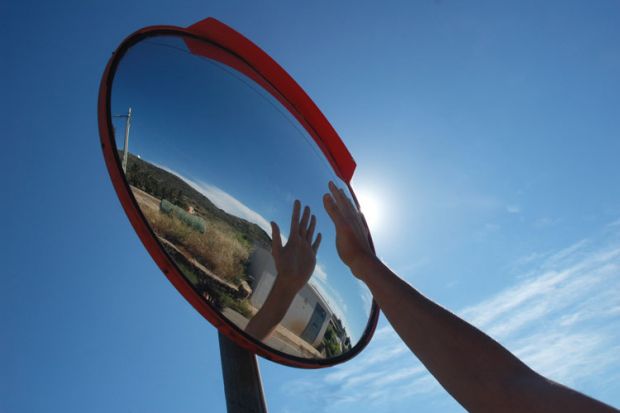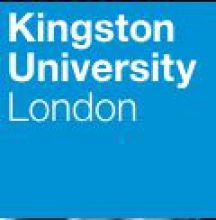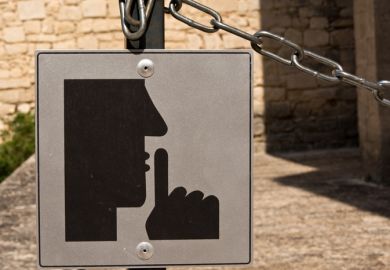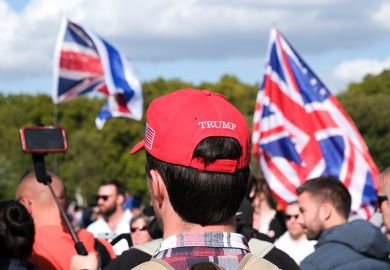Sections of a Downing Street statement that accused universities of hosting hate preachers are identical to those featured in a report by a controversial thinktank, Times Higher Education has learned.
As new rules on how universities monitor events by outside speakers came into force last month, the prime minister said that institutions had a “duty to protect impressionable young minds” and to ensure that “radical views and ideas are not given the oxygen they need to flourish”.
“At least 70 events featuring hate speakers were held on campuses, according to the government’s new Extremism Analysis Unit”, the Downing Street statement added.
But four universities – Queen Mary University of London; Soas, University of London; King’s College London; and Kingston University – that were named as hosting the most events involving extremist speakers said that they were perplexed by the accusation, which Soas insisted contained “inaccuracies”.
Queen Mary’s principal, Simon Gaskell, complained that his institution had had no contact from the Extremism Analysis Unit, which seemed to have produced the figures.
THE has now learned that the source of much of the data is likely to be a recent report by Student Rights, an arm of the Henry Jackson Society.
Written by Student Rights director Rupert Sutton, the Preventing Prevent report lists the four London universities mentioned by Downing Street in its own table of the most-visited universities.
It also includes a list of former students later convicted of terrorism-related offences – of whom eight are also mentioned in the Downing Street statement using terms that are identical or almost identical to ones used in the Student Rights report.
For instance, both reports state that Umar Farouk Abdulmutallab “had repeatedly contacted extremists who were under MI5 surveillance” while he was a student at University College London, before being “convicted in 2012, of attempted murder and terrorism, after trying to bomb a passenger flight to Detroit in 2009”.
Familiar: text from the two reports

An independent inquiry commissioned by UCL later found no evidence to suggest that the Nigerian student had been radicalised on campus or that he had exhibited any signs of a propensity to radicalisation.
THE has repeatedly tried to contact Downing Street to establish the source of information contained in its 17 September statement, but it has not received a response.
However, THE understands that only the figure about the 70 events came from the Extremism Analysis Unit, with the source of the remaining material remaining unclear.
The seemingly unattributed use of the Henry Jackson Society material is likely to concern many within the sector, with several students’ unions accusing the organisation of pursuing an Islamophobic agenda.
David Miller, professor of sociology at the University of Bath, who co-authored a book on the origins of the Henry Jackson Society and its funding from pro-Israel supporters, called for the government to publish the source of its data to show that they were “not of dubious provenance”.
“The Prevent duty depends on having objective information and clear evidence about how universities are responding to it – information must be transparent and unimpeachable,” Professor Miller said.
“HJS is not an academic body, but a campaigning thinktank with a neoconservative...agenda, so the notion that it could set the agenda on extremism is staggering,” he added.
In response, Mr Sutton said that Spinwatch, with whom Professor Miller published his book, had itself received funding from controversial sources such as the Cordoba Foundation, which has been labelled the “political front for the Muslim Brotherhood” by David Cameron.
“Spinwatch is funded by the very extremists Prevent seeks to challenge. So it is no surprise to us to see it working to undermine Prevent, as well as labelling those organisations actively working to challenge extremism with scurrilous accusations of Islamophobia to distract from its own insidious agenda,” he said.
POSTSCRIPT:
Print headline: No 10’s report mirrors thinktank extremism study
Register to continue
Why register?
- Registration is free and only takes a moment
- Once registered, you can read 3 articles a month
- Sign up for our newsletter
Subscribe
Or subscribe for unlimited access to:
- Unlimited access to news, views, insights & reviews
- Digital editions
- Digital access to THE’s university and college rankings analysis
Already registered or a current subscriber?







